Enhancing Security: The Future of Door Control Systems in Smart Buildings and Homes
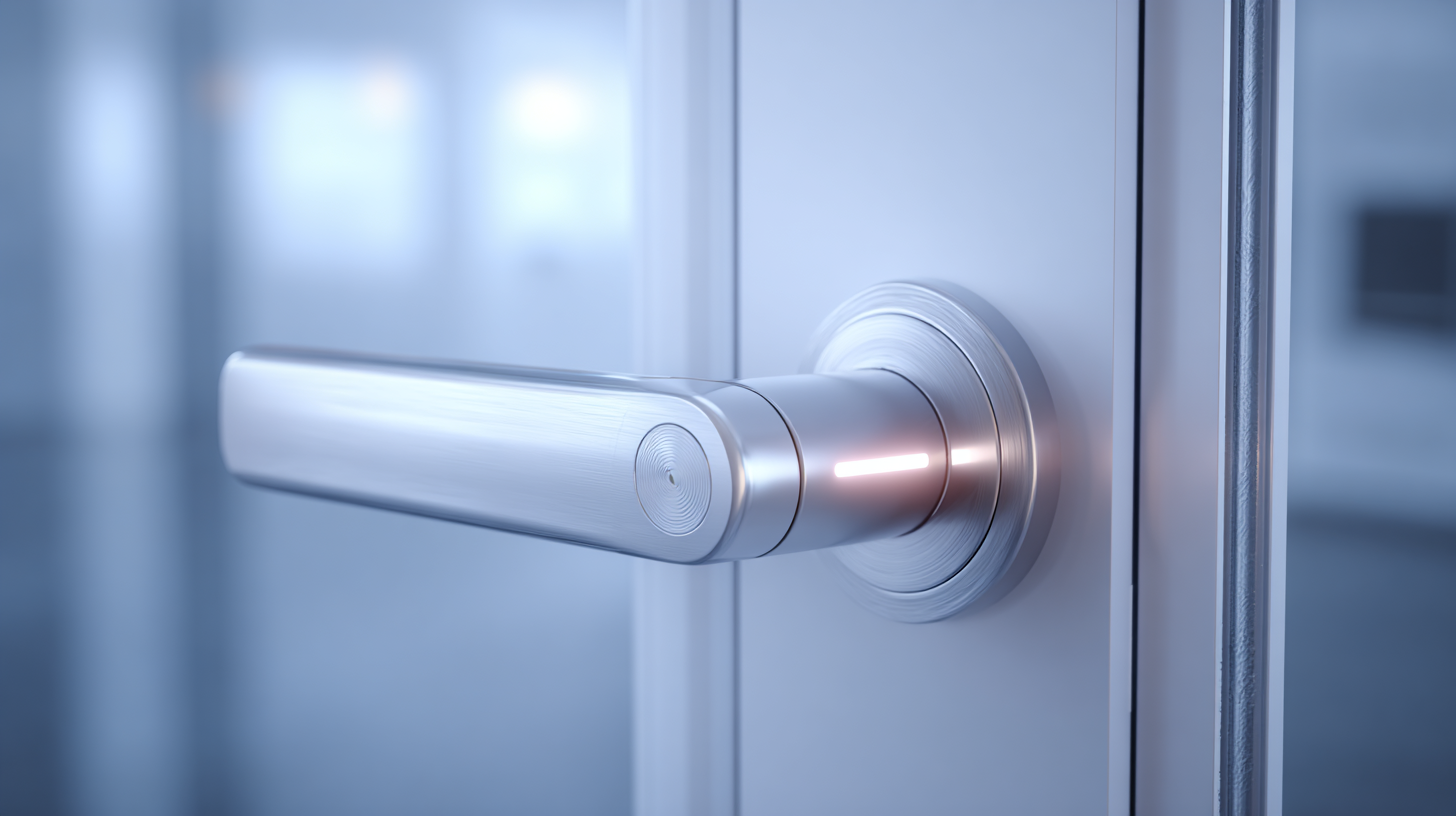 As the smart building industry continues to evolve, the importance of
sophisticated Door Control Systems
has become increasingly evident. With projections from
MarketsandMarkets forecasting that the global smart building market will reach
$1,573.4 billion by 2027, the integration of
advanced door security mechanisms is paramount for ensuring safety and efficiency in both
residential and commercial spaces. Recent studies indicate that organizations implementing
modern Door Control Systems experience a
30% reduction in unauthorized access incidents,
underscoring the critical role these technologies play in enhancing overall security.
Additionally, the rapid adoption of
Internet of Things (IoT) devices is driving innovation in door control solutions,
transforming traditional locking mechanisms into intelligent, responsive systems that can be
accessed remotely and managed seamlessly. As we look towards the future, it is clear that a
robust Door Control System is not just a luxury but a
necessity for smart buildings and homes aiming to achieve a high standard of security and
convenience.
As the smart building industry continues to evolve, the importance of
sophisticated Door Control Systems
has become increasingly evident. With projections from
MarketsandMarkets forecasting that the global smart building market will reach
$1,573.4 billion by 2027, the integration of
advanced door security mechanisms is paramount for ensuring safety and efficiency in both
residential and commercial spaces. Recent studies indicate that organizations implementing
modern Door Control Systems experience a
30% reduction in unauthorized access incidents,
underscoring the critical role these technologies play in enhancing overall security.
Additionally, the rapid adoption of
Internet of Things (IoT) devices is driving innovation in door control solutions,
transforming traditional locking mechanisms into intelligent, responsive systems that can be
accessed remotely and managed seamlessly. As we look towards the future, it is clear that a
robust Door Control System is not just a luxury but a
necessity for smart buildings and homes aiming to achieve a high standard of security and
convenience.
Understanding the Basics of Smart Door Control Systems for Enhanced Security
Smart door control systems are revolutionizing the way we secure our homes and buildings. According to a recent report from MarketsandMarkets, the global smart door lock market is projected to reach $4.4 billion by 2026, growing at a CAGR of 22.5% from 2021 to 2026. This growth can be attributed to increasing urbanization and the rising demand for smart home technologies that provide enhanced security features. These systems integrate advanced technologies like biometrics, mobile access, and remote monitoring, making traditional key-based systems obsolete.
Understanding the basics of these smart door control systems is essential for homeowners and property managers looking to improve security. They typically include features such as mobile app control, which allows users to lock or unlock doors remotely, and real-time alerts that notify users of any unauthorized access attempts. A study by Statista highlights that 30% of property owners express concerns about security breaches, indicating a strong market need for reliable smart security solutions. Moreover, as the Internet of Things (IoT) continues to expand, the interoperability of smart door systems with other security devices further enhances overall building security, creating a connected ecosystem that is more secure and convenient for users.
Enhancing Security: Smart Door Control Systems Adoption
Key Technologies Shaping the Future of Door Control in Smart Environments
The evolution of door control systems in smart buildings and homes is significantly influenced by several key technologies. Central to these advancements is the integration of the Internet of Things (IoT), which enables seamless communication between devices, allowing homeowners to monitor and control access from anywhere. Smart key systems, now gaining popularity in commercial buildings, enhance security without sacrificing convenience. They offer robust solutions that replace traditional keys with digital counterparts, ensuring that only authorized individuals can gain access while maintaining real-time tracking and management.
Moreover, artificial intelligence plays a pivotal role in enhancing the efficiency and security of smart environments. AI algorithms analyze data from multiple sources, predicting and preventing potential security breaches before they occur. This proactive approach, combined with machine learning and automation capabilities, sets the foundation for a smarter future where door control systems not only secure premises but also adapt to the habits and preferences of the inhabitants. As these technologies continue to evolve, they reshape how we think about security in both residential and commercial settings.
Integrating Smart Door Systems with Home Automation for Optimal Security
The integration of smart door systems with home automation is revolutionizing residential security. According to a report by MarketsandMarkets, the smart home market is expected to grow from $80 billion in 2020 to over $135 billion by 2025, driven by people’s increasing demand for enhanced security features. Smart door systems, combining locks, cameras, and motion sensors, enable homeowners to monitor access in real-time and even control entry remotely. This level of connectivity not only deters potential intruders but also provides peace of mind for those at work or traveling.
Tips for optimal security include regularly updating software for your smart door systems, as manufacturers often release patches that fix vulnerabilities. Additionally, consider integrating voice recognition technology for access; 75% of security experts believe that biometric authentication will become the standard in the next five years. Furthermore, ensure your home automation system is on a secure Wi-Fi network, as breaches often occur through unsecured connections. By adopting these practices, homeowners can significantly enhance their security posture in an increasingly connected world.
Best Practices for Choosing and Installing Advanced Door Security Solutions
When selecting advanced door security solutions for smart buildings and homes, it is vital to consider several key factors that ensure optimal safety and functionality. First and foremost, assess the specific security needs of your property. Different locations may require varying levels of security; for instance, commercial spaces often demand higher protection compared to residential settings. By identifying vulnerabilities and understanding the environment, you can select door control systems that offer tailored features, such as biometric access control or remote monitoring capabilities.
Furthermore, installation plays a critical role in the effectiveness of any door security system. Always opt for professional installation to guarantee that all components are securely fitted and integrated with existing security measures. Look for solutions that are easy to maintain and update, as technology is constantly evolving. Features like cloud-based management systems can offer seamless updates and remote access, enhancing the overall security posture. Finally, ensure that the chosen system complies with relevant regulations and standards, providing peace of mind that your security measures are both effective and lawful.

Future Trends: AI and IoT Innovations in Door Control Systems for Smart Buildings
The future of door control systems in smart buildings is heavily influenced by advancements in AI and IoT technologies. Security and access control devices are at the forefront of this transformation, as they combine intelligent algorithms with connected devices to enhance homeowner peace of mind. These systems are designed to provide seamless access management while ensuring that safety is not compromised. The integration of AI allows for real-time monitoring and automated responses to security breaches, showcasing the potential for more responsive and proactive security solutions.
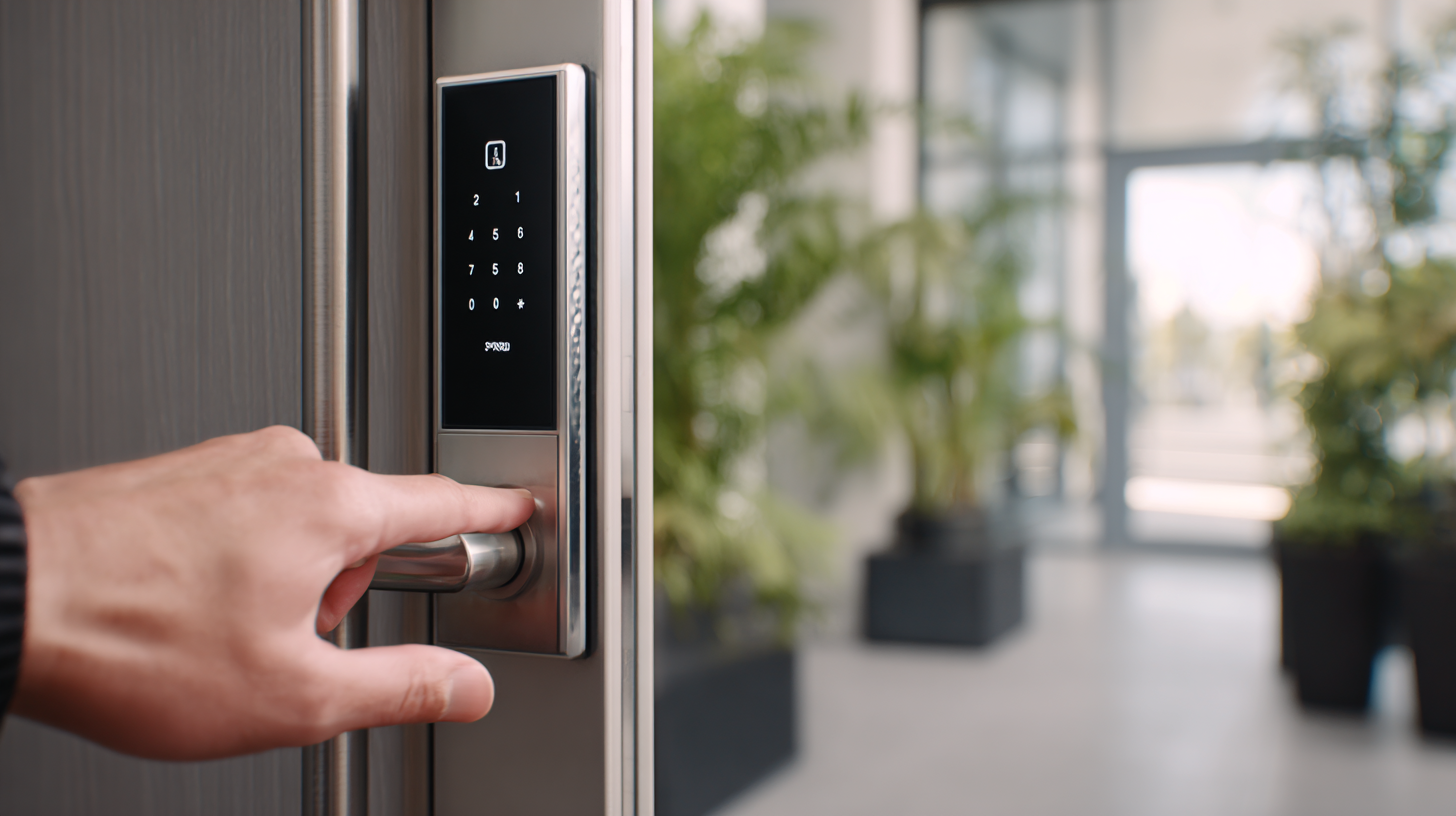
As the smart home market continues to grow, the significance of innovative door control systems cannot be overstated. The increasing demand for smart appliances and HVAC systems can be harmoniously integrated with access control mechanisms, creating a comprehensive and interconnected living environment. The anticipated rise in the digital lock market, driven by key players in the industry, indicates a move towards smarter, more reliable security solutions. As these technologies evolve, they are set to shape the future of home security, making it more adaptive and user-friendly, ultimately redefining the standards of safety and convenience in modern living spaces.
Related Posts
-

Top Strategies for Optimizing Access Control Equipment Performance
-
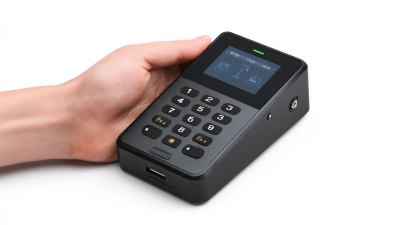
How to Choose the Right Access Control Card Reader Based on Security Trends and User Needs
-
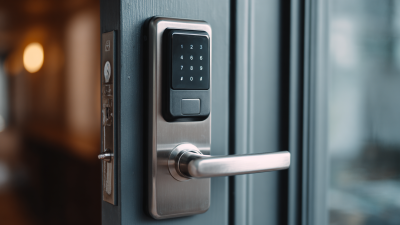
How to Enhance Security with a Door Access Control System in Your Business
-

Revolutionizing Home Safety: The Ultimate Guide to Security Door Access Systems
-
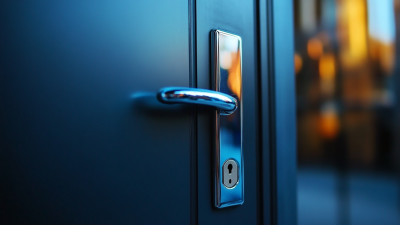
2025 Trends in Door Security Assessing the Best Options for Your Home
-
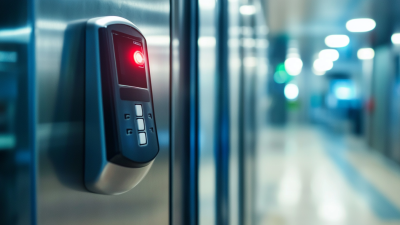
Ultimate Guide to Selecting the Best Access Control Panel for Your Security Needs
- • HighpowerOne Touchscreen Controller • HighpowerOne Mobile Credential App
- Highpower Management System
- • Pushplate 100 PNZ
- • Pushplate 110 PNZ
- • Pushplate 120/140 PNZ
- • Pushplate 130/150 PNZ
- • Pushplate 200 PNZ
- • Pushplate 100
- • Pushplate 110
- • Pushplate 120/140
- • Pushplate 130/150
- • Pushplate 200
Mechanical Timers
Proximity ID Access Cards and Fobs
Proximity Card Readers
- • Proximity Reader P-300
- • Proximity Reader P-400
- • Proximity Reader P-500
- • Proximity Reader P-620
- • Proximity Reader P-640
- • Proximity Reader P-710
- • Proximity Reader P-900
- • Ranger Proximity Readers
- • Ranger Controls
- • Sure-Fi Wireless Interfaces
Smart Series JX Readers
Electromagnetic Locks
Highpower Power Supplies
• H505
• H512
Security Products Summary
